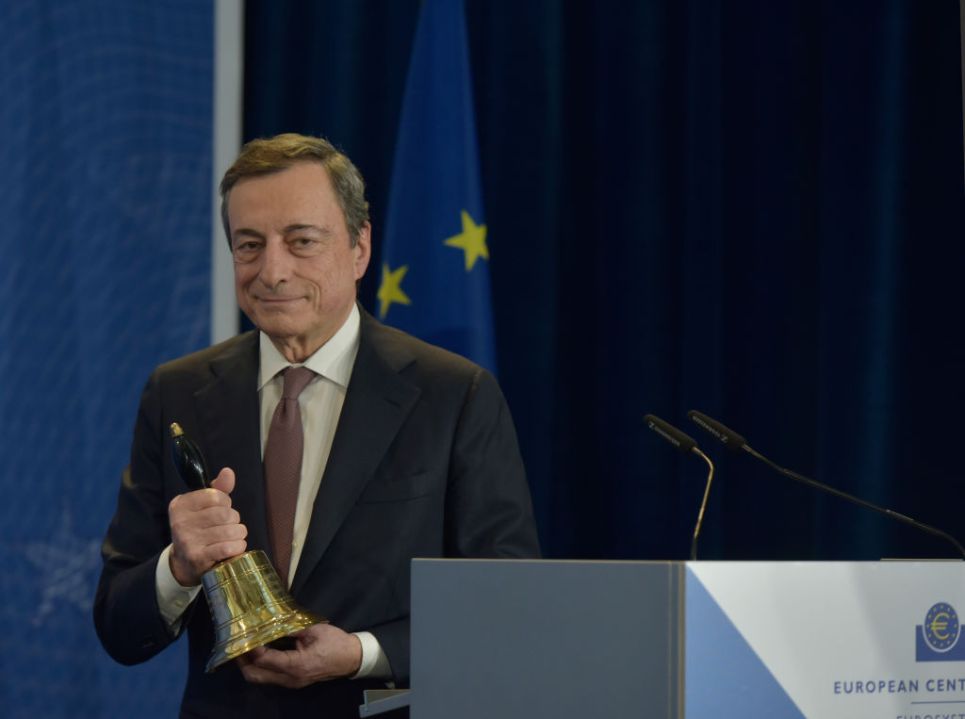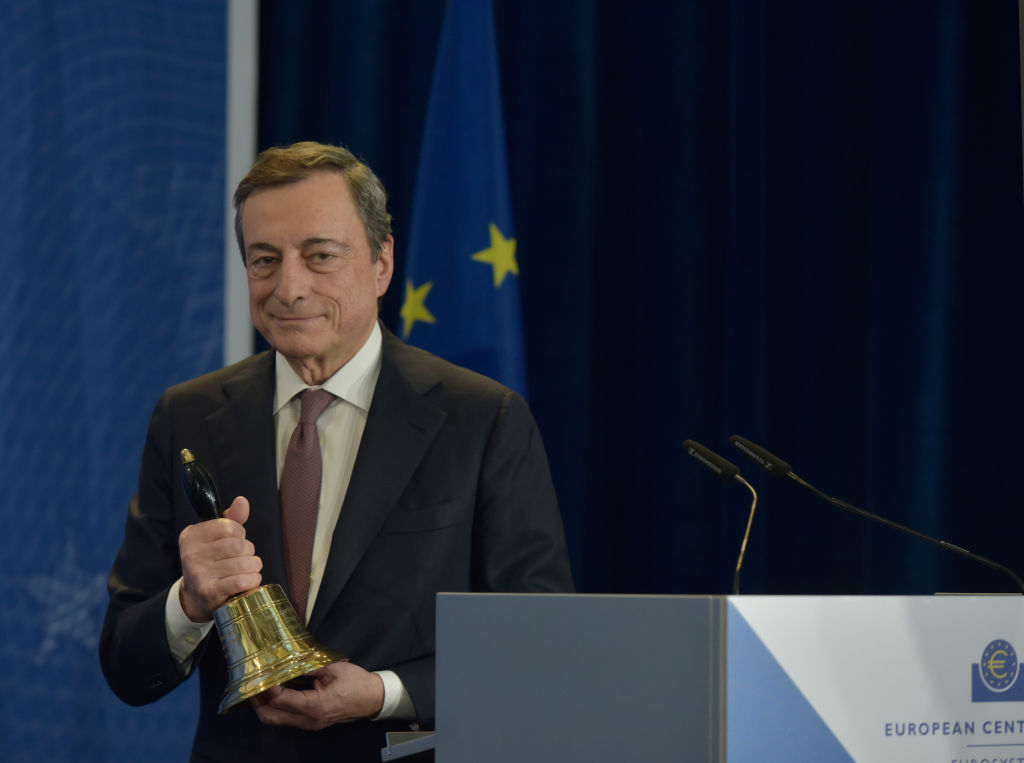In the aftermath of the financial crash, two ‘Super Marios’ came to Italy’s rescue. Mario Draghi, then president of the European Central Bank, and Mario Monti, an economics don turned politician, both helped steady the ship. Now, more than a decade on, one of those Marios is back. But is he the man Italy needs in its hour of need?
Draghi, who is set to become Italy’s new prime minister, has followed a well-trodden path to this moment. Like Monti, he has worked in academia and is a Goldman Sachs alumnus with a stellar EU career on his back. It all sounds very familiar. But can Draghi avoid the fate of the other Mario and ensure that Italians don’t quickly turn against him?
Pundits in Italy often point out that Draghi is ‘more political’ than Monti, by which they mean he’s well-versed in Italy’s political shenanigans. After all, the Rome-bred Draghi is a veteran mandarin: he cut his teeth working in the ministry of finance in the early 1990s, and served as permanent secretary to the Treasury under seven different prime ministers. While many Italians worship Draghi as the man who saved the euro in 2012, they forget his key role in other national crises. As one of Italy’s top civil servants, he oversaw the devaluation of the Lira in 1992 and the sudden transition from the First to the Second Republic. He also took the lead in the debt-reducing privatisation schemes which eventually allowed Italy to join the euro in the first place. Dismissing the new PM as yet another greyish technocrat might be a bit of an understatement.
The coalition partners don’t only believe in wildly different things. They also deeply loathe one another
He is certainly no pushover: in his years in Frankfurt, Draghi persuaded the hawkish German government to accept Quantitative Easing, the massive bond-buying programme which was considered anathema almost everywhere north of Paris. If he stood up to Angela Merkel, his supporters say, he will succeed in bending Italy’s more modest politicians to his will.
‘The key difference is that so far Draghi has only sat at the table with other central bank governors, who fundamentally share his world view’, says Alessandro Speciale, a Bloomberg journalist who wrote a biography of the former chief of the ECB. ‘As PM, he will have to confront himself with politicians, who are by definition irrational and self-interested’.
That’s quite a euphemism. As things stand, Draghi’s new government will include everything from the far-left Liberi e Uguali to the far-right Lega; he will have to sit around a crowded table with the firebrand eurosceptic Matteo Salvini and former PM Matteo Renzi, who is well-versed in the art of making and breaking governments. To make things worse, the coalition partners don’t only believe in wildly different things. They also deeply loathe one another. In these circumstances, even Bismarck would struggle to find some common ground.
Nonetheless the new PM must find a way forward. Draghi’s government will be faced with the monumental task of spending the 209 billion euros (£180bn) which have been made available by the EU’s Recovery Fund, and which are a once-in-a-generation opportunity to solve Italy’s chronic problems. Despite the talk of national unity, it will be almost impossible to remain politically neutral. Draghi’s mission is made all the more difficult by the fact that his new bedfellows, especially the Lega and the populist Movimento Cinque Stelle (M5S), have spent most of their political lives raging against the euro and dismissing his ideas.
In one of his rare public speeches at the Cattolica university in Milan, Draghi distinguished between ‘good debt’, which is invested in long-term projects, and ‘bad debt’, wasted on flashy and consensus-driven schemes. It’s hard to think of a more apt example of the latter than the M5S’ flagship ‘reddito di cittadinanza’, a much-propagandised universal salary to keep its voters in southern Italy happy. Likewise, Salvini spent most of last year moaning against the European Stability Mechanism (ESM), a eurozone-wide emergency pot of money designed to provide a lifeline to the struggling economies of the Club Med in 2012. Well, guess who was the president of the ECB back then?
Let’s not be naive. Italy’s recent political history is filled with stabs-in-the-back and U-turns which, however hypocritical, have kept the situation from falling apart. Salvini’s baffling speech after his first closed door meeting with Draghi on Saturday has been a lesson in political rebranding: he praised the EU, endorsed a green agenda, and even cited Alcide De Gasperi, Italy’s Christian Democratic post-war statesman.
This time next year things in Italy might look very different. The Lega could end up reverting to a softer and more pragmatic brand of Euroscepticism. Frankly, it wouldn’t be an unwelcome thing. Most of Draghi’s technocratic predecessors did not achieve much and were eventually devoured by Italy’s self-preserving political system, which quickly reverted to its status quo. But if one man can put Italy back on track, and perhaps change its politics for the better, it has to be ‘Super Mario’.







Comments